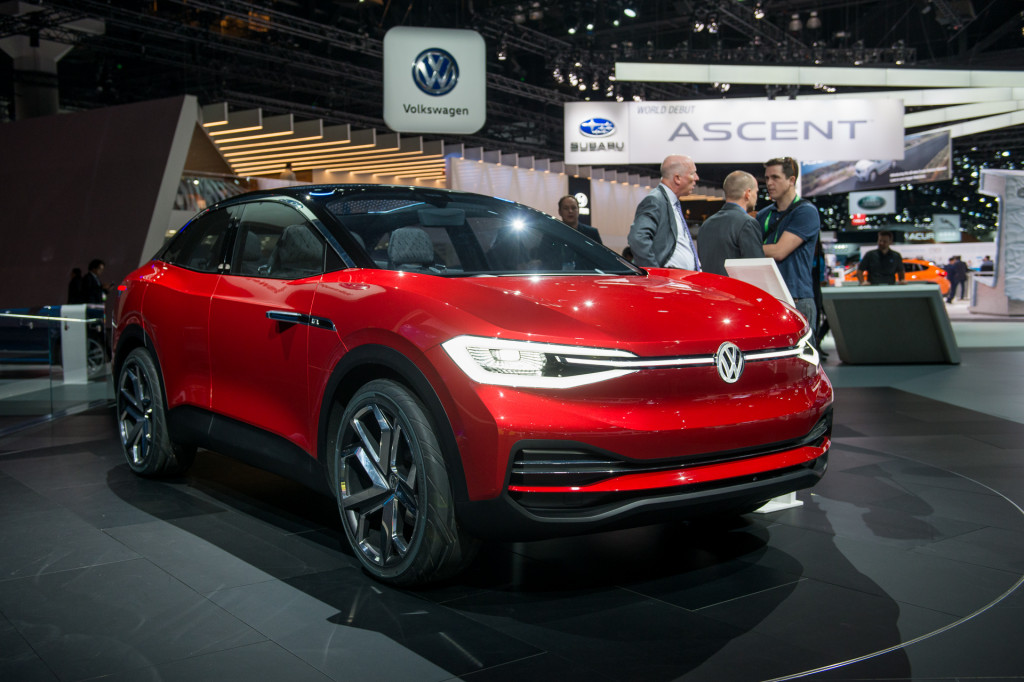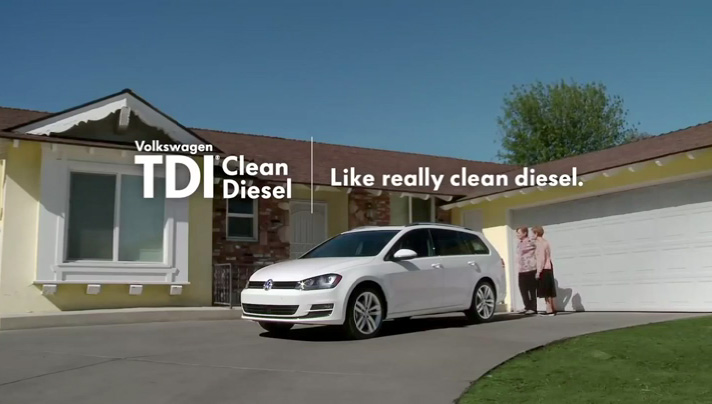For a company that has only two battery-electric models in production, both several years old, VW Group spends a great deal of time talking about electric cars.
The company has plans to launch 30 new electric vehicles by 2025, and has released four Volkswagen ID concepts, the first of which will enter production in November 2019.
At its annual press conference held Tuesday morning, however, Volkswagen said something that should make the rest of the industry pay sharp attention.
DON'T MISS: VW needs '40 gigafactories' for electric-car batteries by 2025 (Jul 2017)
VW Group has now concluded deals with LG Chem and Samsung to provide lithium-ion battery cells for the electric cars it builds in Europe, said CEO Matthias Mueller.
And for China, whose regulations will require perhaps the steepest production increase in plug-in electric vehicles, it has concluded a deal with Contemporary Amperex Technology Ltd., or CATL.
The deals were reported on Tuesday by Bloomberg and other outlets, and will total 20 billion euros ($25 billion) over the lives of the contracts.

Volkswagen ID Vizzion concept
The company said last year it would like to secure battery-supply contracts totaling 50 billion euros ($62.5 billion) to build into electric cars planned for almost all of its 12 brands.
By 2025, VW Group expects to sell 3 million electric vehicles a year, Mueller said, in 16 different factories on multiple continents.
From 2020, it will roll out one electric car "virtually every month" to give it the most varied fleet of electric models of any automaker.
READ THIS: VW Group makes 300 models globally, will electrify them all by 2030 (Sep 2017)
VW is now working on a similar battery-supply deal for the electric cars it plans to build in North America, which it said last July it expected to do sometime during 2020.
That car may be the production version of the Volkswagen ID Crozz compact crossover it has displayed at auto shows around the world over the last year.
Other concepts include the first EV model to launch, the Volkswagen ID compact hatchback targeted only at Europe.

Volkswagen ID Crozz concept, 2017 Los Angeles auto show

Volkswagen ID Buzz and ID Crozz concept, 2017 Los Angeles auto show

Volkswagen ID Crozz concept, 2017 Los Angeles auto show
It is a Golf-sized compact car with the interior room of a mid-size car due to the long cabin permitted by its electric powertrain.
At last week's Geneva auto-show media days, the company showed the Volkswagen IZ Vizzion, a large premium electric sedan concept.
Perhaps the most rapturously received electric concept, though was the Volkswagen ID Buzz, a modern-day all-electric interpretation of the classic Microbus, or Type 2 transporter.
CHECK OUT: Volkswagen ID Buzz drive: electric VW bus offers unique EV concept
That vehicle, targeted for production in 2022, is a joint project of Volkswagen's passenger-car group and its commercial-vehicle arm.
That indicates the range may well include cargo and delivery versions as well as multi-window passenger models.
The battery-supply contracts announced by CEO Mueller today may not quiet skeptics who suggest the company's numerous announcements of electric-car progress amount to little more than window dressing.

Volkswagen TDI 'clean diesel' television ad screencap
Certainly VW is keen to move away from its diesel cheating scandal—CEO Mueller suggested last week it expected diesels to continue as part of its European offerings.
Meanwhile, a criminal investigation in Germany into the diesel-cheating scandal is now in its second year.
Certainly the skeptics will have to wait almost two years to see if long-range electric cars actually do land in showrooms in Europe, China, and North America.
But tens of billions of dollars of supply contracts for battery cells through 2025 might seem to indicate some urgency on the part of a company struggling to look forward to a cleaner future rather than backward to the sins of its past.













